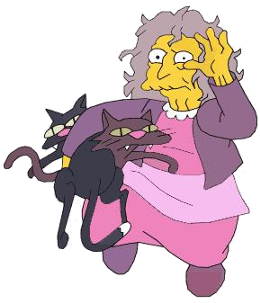Linguist explains secret language of Gulliver's Travels
 |
| www.framestore.com Ted Danson as Lemuel Gulliver in the NBC production aired in April 1996. |
Linguist explains secret language of Gulliver's Travels
Research suggests Hebrew solution to 289-year-old puzzle
A linguist from the University of Houston is proposing a solution to a centuries-old puzzle: What sparked the "nonsense" language in "Gulliver's Travels"?
Irving N. Rothman, a professor of English literature and Jewish studies at UH, says the mystery words are, in fact, variations of Hebrew. His conclusions are published in the summer 2015 edition of Swift Studies, an annual review of scholarship on the work of novelist Jonathan Swift from the Ehrenpreis Center.
In the article, "The 'Hnea Yahoo' of Gulliver's Travels and Jonathan Swift's Hebrew Neologisms," Rothman points out a number of clues he used to reach this conclusion. Swift, he notes, was an Anglican minister who studied Hebrew at Trinity College.
"Gulliver's Travels," published in 1726, is Swift's best-known work, a satire on human nature, politics and the traveler's tales popular at the time. It remains a staple of high school and college literature classes.
 |
| Gulliver's Travels By Jonathan Swift Order new or used from Powell's Books |
Written in the voice of traveler Lemuel Gulliver, the novel reports the unlucky Gulliver's various adventures, including his capture on the shores of the island nation of Lilliput by a race of people just six inches tall.
Immediately upon his capture, Gulliver encounters a puzzling use of language.
"When Gulliver awakens to discover himself tethered to the ground, he finds himself face to face with a six-inch Lilliputian who utters the words 'Hekinah Degul,' " Rothman writes in Swift Studies. "The words are repeated when the Lilliputians observe Gulliver drinking two hogsheads of a liquor resembling Burgundy. When he swallows ... the people shout 'Borach Mivola.' "
In his 1980 annotated version of the book, Isaac Asimov writes that "making sense out of the words and phrases introduced by Swift ... is a waste of time. ... I suspect that Swift simply made up nonsense for the purpose."
Rothman disagrees and offers a lengthy list of examples as evidence of Swift's use of Hebrew.
The first is straightforward: Readers are told the alphabet in the land of the giants -- the Brobdingnags -- consists of 22 letters. Hebrew relies upon a 22-letter alphabet, compared to the 26 letters of the English alphabet.
Another example: Rothman said the phrase Borach Mivola, shouted as Gulliver drinks the liquor, can be interpreted with Borach as a variant of the Hebrew Boruch, or blessed. Mivola, if spelled in the Hebrew manner mivolim, means "complete defeat," he said.
"Swift's application of the word Mivolam to Gulliver's drinking of two hogsheads of liquor would have Swift show Gulliver drunk, boisterous among the Lilliputians, and oblivious of his misery," Rothman writes. "Thus Swift engaged in a witty synecdoche or a willful distortion in his satirical use of the Hebrew word."
Rothman, who predicts Swift's use of Hebrew terminology will become part of the future curriculum for "Gulliver's Travels," said his strongest evidence is his interpretation of the book's use of "yahoo."
"Yahoo" is used to describe the creatures Gulliver encounters in Book IV, a human-like species described as wild and irrational.
"Many scholars in the critical history of the Travels are agreed that 'the most powerful single symbol in all Swift is the Yahoos. (They) represent ... the bestial element in man -- the unenlightened, unregenerate, irrational element in human nature,' " Rothman wrote.
He noted earlier interpretations suggesting the word comes from the four-letter holy Hebrew name of god, written YHWH and pronounced Yahweh. Similar interpretations point to another four-letter name, YHVH, or Yahveh. Thus, he said, the four-letter name for God, or tetragrammaton, is used by Swift to designate the "Yahoo."
He described his work as "breaking the code," relying on different sounds, or allophones, of the letter "v," which can be pronounced "v," "oh" or "ooh." For the word "Yahoo," Swift employed the "ooh" version.
That doesn't, however, explain Swift's use of the term to describe the unpleasant creatures.
But according to Rothman, the Yahoos are described as Hnea Yahoo, and he said the word Hnea, if read right-to-left as Hebrew is read, is the word ayn, or not. "Those beasts are the opposite of God and the antithesis of God," he said.
Gulliver, Rothman concludes, "is not in any sense a Yahoo entirely devoid of godlike virtues. Indeed, Gulliver is a human being achieving saving grace, a hope not accorded to the Yahoo."
Related stories:
- Authors Use More Fear, Less Emotion Over Last 50 Years
- Comprehending Comprehension
- Conjunctions & Pronouns are the Language of Love
- Darwinian themes of survival in romance novels, pop songs and movie plot lines
- The Effect of Fictional Religions in Literature
- The Growing Epidemic of "Valley Girl Speak"
- How the Novels You Write May Actually Change the Biology of Your Reader's Brain
- How to Get Them Lost in Your Narrative
- How to Succeed as a Freelancer
- How to Tell if the Magazine You Write for can Survive Digital Competition
- Learning to be Funny: Comedy College
- Literary Creativity Down; Artistic Creativity Up Since 1990
- Reading Literary Fiction Improves 'Mind-Reading' Skills
- Salinger ~ A New Biography
- Seven commonly held myths about your brain
- The very real risks to women of 50 Shades of Grey
- To Cut Teen Smoking, Rate Films with Smoking R
- Your Brain Spots Grammar Error You Might Miss

Comments
Post a Comment